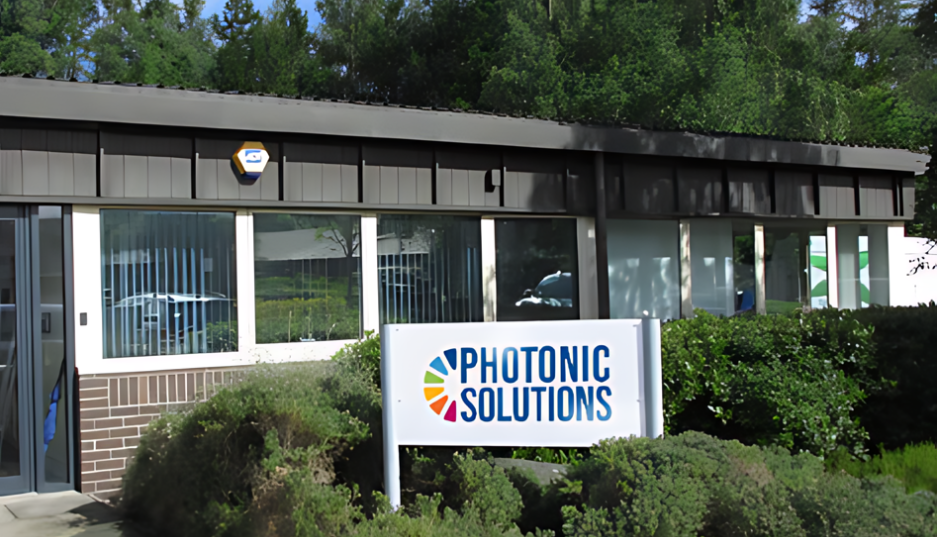The UK’s photonics industry has undergone a revolution in the past 25 years – and Photonic Solutions has been at its heart. What began in 1999 as a specialist supplier of pulsed lasers to a handful of academic physical chemists has since evolved into a comprehensive solutions provider for the entire sector – a sector now contributing £14.5 billion to the UK economy [1].
Andrew Blain, Managing Director at Photonic Solutions, reflects on the company's journey: "When the business was founded 25 years ago, it's probably fair to say that photonics was quite a niche area. There were only a handful of institutes that were focused on photonics-based research, and the number of UK manufacturers and adopters was rather low.”
From humble beginnings
The company's origins lie in serving a very specific market need. Says Blain: "The founders at that time ran the agency division of Edinburgh Instruments, and then they spun the business out to form Photonic Solutions as an entity in its own right." At that stage, the focus was on supplying and installing pulsed Nd:YAG and tunable dye lasers.

The Photonic Solutions facility, located on the Heriot-Watt University Research Park in Edinburgh (Credit: Photonic Solutions)
The customer base was equally focused. "Our customer base, when we started off, was almost solely made up of physical chemists who needed pulsed laser excitations to allow the study of photophysical phenomena". These early lasers were not always a "turnkey box" like the lasers of today, and often required installation and user training from a factory-trained engineer. This hands-on, on-site approach proved invaluable, as academics quickly realised their reliance on Photonic Solutions’ engineers to ensure continuous laser operation.
Riding the wave of industry transformation
The transformation of the UK photonics sector over the past two and a half decades has been remarkable. "We do now see all major universities across the UK involved with photonics, across multiple faculties and disciplines," says Blain. From a manufacturing perspective, the UK has developed a "really strong ecosystem of technology manufacturers and also integrators".
The sector has evolved from a niche area of academic research to a foundational technology at the heart of many products manufactured in the UK.
A solutions-first approach: from enquiry to implementation
Photonic Solutions doesn't just sell products; it solves problems. This solutions-first philosophy is a core differentiator, setting the company apart from competitors. As Blain explains: 'It means that we're passionate about engaging with our customers to find the right photonic solution. We can configure a full solution for the customer, as opposed to just supplying one piece of that jigsaw puzzle.”
This approach extends to every new customer enquiry. "Our approach boils down to one main question: what's your application, and how do you want to use your solution?". As applications have expanded, the company's answers have become increasingly diverse, always focusing on understanding the customer's challenge before recommending a product
Technical expertise and service excellence
Maintaining technical competence across a diverse portfolio can be a constant challenge. Photonic Solutions addresses this through a distinctive operational model. The company's product experts are factory-trained at the manufacturer's site and then become key points of contact for all sales and service enquiries. "We try to operate as an extension of our manufacturing partners," says Blain.
This dedication to service creates a competitive advantage. "We believe that we've got really unrivalled expertise here in the UK," says Blain. "Our service engineers are exposed to a lot of diverse types of technology, and as such, they have to quickly adapt to each situation. That means they can support customers in a much more diverse way than someone focusing on one product.”
Building long-term partnerships
Photonic Solutions' commitment to long-term relationships has proven particularly valuable during challenging periods. Says Blain: "From an industrial perspective, we've worked with various integrators and OEMs over the past 25 years. We've been more than just a trusted supplier of goods; in some cases, we're also providing some manufacturing and sub-assembly services to them, really going up that value chain". This deep integration proved crucial during the pandemic. "For some of those particular customers during COVID, us being so deeply integrated with them allowed us to really help them mitigate the supply chain issues".
In a post-Brexit landscape, a strong UK presence has become a crucial advantage for customers. "The supply process has become a lot more challenging," says Andrew, "but we've always been fully adept at navigating the import-export challenges that most overseas suppliers would find very difficult to do". The company’s ability to hold stock for certain key customers also helps to manage supply chain issues and minimise downtime.
Emerging opportunities and applications
Looking ahead, Photonic Solutions sees significant opportunities in industrial laser processing. "The UK is Made Smarter review identified that industrial processing and materials uses one-third of the £11bn global market for lasers, yet adoption in UK industry is low, especially outside our largest manufacturers," Blain explains. "We believe that laser manufacturing is a key productivity enabler, in particular laser processing, and we see this as a key growth area for ourselves. We've recently entered into partnership with LASEA to offer their range of industrial laser machines."
Lasea's industrial laser systems represent a significant technological advancement in precision manufacturing. They are designed for high-precision applications including cutting, welding, drilling, and surface modification across a wide range of materials. Says Blain: “The technology is particularly suited to industries that require micro-level precision, such as electronics manufacturing, automotive components, and medical device production, where traditional mechanical processing methods fall short.”
Machining of light controlling structures in glass (Credit: Photonic Solutions)
Photonic Solutions is also expanding its portfolio to address evolving manufacturing needs, introducing new products specifically aimed at the manufacturing sectors, including advanced micromachining tools for use in laser processing. Says Blain: “These instruments allow manufacturers to work with increasingly complex materials and achieve tolerances measured in micrometres, opening up possibilities for miniaturisation and improved product performance.” The micromachining capabilities are particularly relevant for creating intricate features in components for aerospace, electronics, and precision engineering applications.
These technological additions complement other products addressing evolving markets, from ultrafast laser systems that enable new materials processing techniques, to advanced beam delivery systems that improve processing speed and quality. What’s more, the company continues to support emerging sectors, including quantum technologies. "Quantum certainly continues to be an emerging area, and we do continue to support that sector," says Blain.
In fact, Photonic Solutions has been active since 2014 when the first quantum tech hubs were established. It also has a wealth of experience in medical technology, through its strategic partnerships and continuous investment in training. This expansion into evolving markets has required ongoing investment in the knowledge capabilities of the sales team and product specialists to ensure they can provide expert support across the broadening portfolio of products in the quantum sector.
The future of UK Photonics
For Blain, the future of UK photonics is intrinsically linked to fundamental scientific research. "Large-scale science increasingly relies on photonics," he says. "It's vital that we are supporting the work in fundamental science, whether that's harnessing extreme ultrafast lasers or detecting single photons or peering into microscopic worlds with super-resolution microscopes. Photonics enables us to predict exactly what will be the next major breakthrough."
As the UK photonics industry continues to evolve, Photonic Solutions' quarter-century journey from academic specialist to comprehensive industry partner positions it well for whatever challenges and opportunities lie ahead. With its solutions-first philosophy, technical expertise, and commitment to long-term partnerships, the company exemplifies how businesses can successfully adapt and thrive in rapidly evolving high-technology sectors.
1 The UK Photonics Vision for 2035, Photonics Leadership Group


